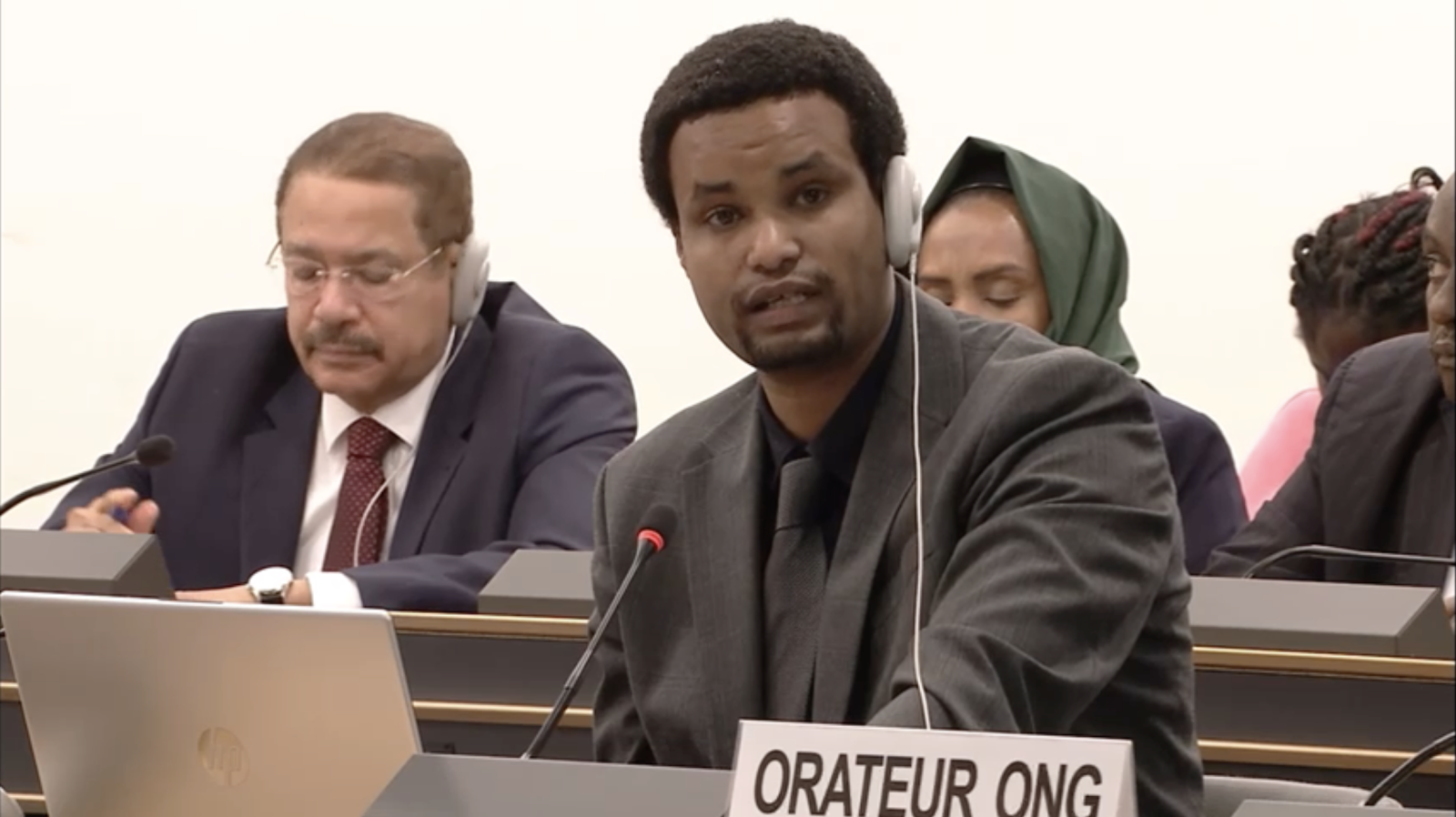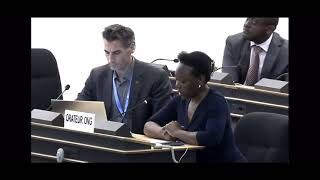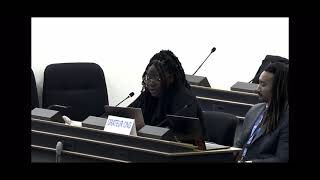The High-Level Segment
Racism and Racial Discrimination
Mr. President, distinguished members of the Council
It is alarming that institutional racism and racial discrimination continue to be widespread and pervasive in all regions of the globe. Human history is evidence enough that racism and racial discrimination translates into some of the worst atrocities imaginable.
Current racial divisions rooted in transatlantic slavery and colonialism require serious action to redress. We are deeply concerned over todays situation for African and Arab migrants who face increased vilification based purely on their ethnic origins. With racially based hate crimes on the rise, there is growing concern that hate speech, misinformation, and disinformation in the media, is the probable catalyst.
Moreover, political leaders and persons of influence are using hate speech, and incitement to hatred, to target, vilify, and isolate groups based on race. Negative perceptions and stereotypes de-humanize victims and can potentially lead to the most serious of crimes such as ethnic-cleansing or genocide.
Despite the existence of several international norms, treaties, and instruments that explicitly condemn all forms of racial discrimination there are numerous examples of discriminatory acts and laws currently in place and enforced. For instance, the 1982 Myanmar Citizenship Law restricts the Rohingya from exercising basic human rights such as freedom of movement or full political participation.
In other regions, innocent individuals and families lose their homes and their lands through forced evictions and demolitions that have devastated the lives of men, women and children. Indigenous communities such as the Maasai in Eastern Africa and First Nations people in North America are forcefully evicted and targeted as a result of these discriminatory laws.
In the Occupied Palestinian Territories, families and children have been devastated by unlawful demolitions of civilian properties for generations.
As a Palestinian, I have witnessed countless stories of the disenfranchisement, dispossession, and displacement suffered by my people under discriminatory Israeli laws and practices. Racially based actions everywhere continue to threaten the peace of local villages and communities as perpetrators, enjoy impunity.
Mr. President, distinguished members of the Council
The fight against racism and racial discrimination has been on the UN agenda since its beginning and is firmly based on the principles of the UN Charter. We already have the instruments and programmes needed for its elimination, but they are not implemented by states, and not even by the UN itself.
We now call on the Human Rights Council to act at this session on the specific request from the General Assembly to develop and adopt a multiyear programme of activities to provide for the renewed and strengthened outreach needed to inform and mobilize the global public in support of the Durban Declaration and Programme of Action (DDPA).
Finally,
The full and effective implementation of the DDPA is critical, specifically the adoption of national legislation that combats incitement to hatred to prevent and punish crimes inspired by racial hatred and to put into action best practices to ensure the promotion and protection of human rights for all.
Thank you








